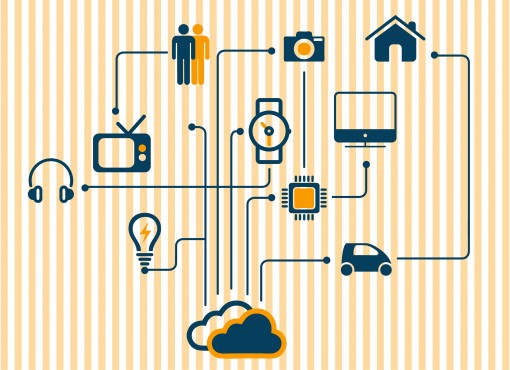You’ve misplaced your keys again, but it’s okay; Google knows where they are. You’ve had a heart attack and can’t reach the phone, but it’s okay; the ambulance is already dispatched. You’re late for class and, oh, shoot, you forgot to put the coffee on — but it’s okay; your coffee maker has already made coffee for you just the way you like it.
That’s because your keys, your coffee maker, and your heart are all part of the Internet.
The Internet of Things (IoT) is a theoretical situation in which people, animals, and objects have unique identifiers such as IP addresses or sensors located within them or on their person, allowing the transfer of data over a network. A rudimentary version of the IoT already exists today with devices like cell phones, computers, and smart TVs. If we want to search for the nearest store selling $50 coffee makers, we might search the IKEA catalogue on a web browser, but the IoT will allow you to wirelessly connect to the coffee maker itself in the store. It may tell you its price, weight, serial number, or take a selfie — I mean, display a photo. After convincing you to buy it, you’ll take it home and tell it at what time you’d like your coffee ready in the morning by using apps on your phone. In a sense, everything will become its own webpage.
Humans are inefficient at gathering data from the real world and organizing it into information and knowledge because we are limited in time, accuracy, and attention. By joining the physical world with the web, we will have computers that know everything there is to know about things and can gather that data on their own without our help. It will change our lifestyles forever as it allows us to monitor, manage, control, and learn about anything from any location. Out at the grocery store and can’t remember if you have enough milk left? Just text your fridge.
The IoT would be immensely useful, but there are concerns with data privacy and cyber security in this utopian scenario. Of course, issues with privacy and cyberterrorism are nothing new, but the IoT could potentially magnify those problems to an unimaginable level as people hack everyday objects, creating a world in which privacy is a luxury, and companies compete to provide the safest security systems.
Also, as with all new technologies, our lifestyle and behaviour will be affected in ways we can’t predict. Over the decades it’s evident our lives became faster paced with the evolution of trains, cars, and planes. Now our lives have become instantaneous thanks to the Internet, computers, iPads, cell phones, texting — we are physically, emotionally, and mentally molded around the technologies we own. How would we handle the IoT if it were to exist in all its glory? There was a time after all when the Internet did not exist — which I know is insane to think about; and if we went back and told someone in the 1800s about the Internet, they’d think we were nuts. But now, given the exponential growth of technology over the past century, the idea of the IoT is so unsurprising to us as to be normalized almost immediately, and may evolve in such a way that we don’t even bat an eye. We’ll accept it into our society with a smooth numbness as we have so many times before.









